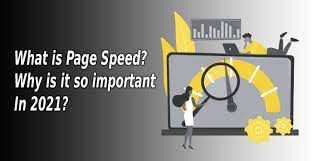In the fast-paced digital landscape, Pagespeed Ladezeit Webseite optimieren verbessern where attention spans are dwindling and user expectations are soaring, the speed at which a website loads has become a crucial factor in determining its success. Enter the realm of “Page Speed” — a fundamental metric that significantly influences user experience, search engine rankings, and overall website performance.
Page speed refers to the time it takes for a web page to fully load its content and become interactive. It encompasses various elements such as how quickly a browser can render the content, load images, execute scripts, and respond to user interactions. This metric holds immense importance for website owners, developers, and digital marketers alike, influencing user engagement, conversion rates, and search engine optimization (SEO).
User Experience and Engagement:
Imagine clicking on a website link only to be greeted by a slow-loading page. Frustrating, right? Studies consistently demonstrate that users expect websites to load within a few seconds, and any delay can lead to increased bounce rates. According to Google, if a page takes more than three seconds to load, over half of mobile users will abandon it. This underscores the critical link between page speed and user engagement. A faster-loading website enhances user satisfaction, encourages longer visits, and boosts the likelihood of conversions.
Search Engine Optimization (SEO):
Page speed is a crucial factor in search engine algorithms. Major search engines like Google consider it when ranking websites. Google’s algorithm rewards faster-loading websites by placing them higher in search results. Moreover, in recent years, Google has integrated page speed into its Core Web Vitals, emphasizing its importance in determining a website’s overall user experience and SEO performance.




